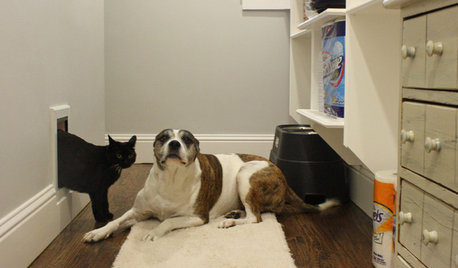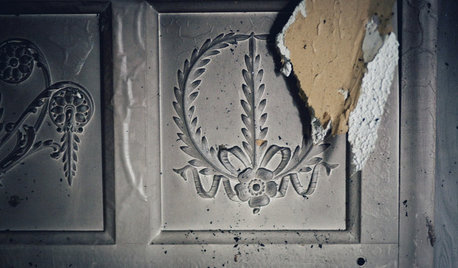Fire hazards-which is worse plastic or cardboard?
lilleth
16 years ago
Related Stories

GARDENING AND LANDSCAPINGChoosing a Deck: Plastic or Wood?
Get the pros and cons of wood, plastic, composite and more decking materials, plus a basic price comparison
Full Story
KITCHEN DESIGNHouzz Quiz: Which Kitchen Backsplash Material Is Right for You?
With so many options available, see if we can help you narrow down the selection
Full Story
REMODELING GUIDESWhich Window for Your World?
The view and fresh air from your windows make a huge impact on the experience of being in your house
Full Story
HEALTHY HOMEA Guide to Indoor Air Purifiers
Get the lowdown on air filtration systems for your house and the important ratings to look out for
Full Story
PETSPet-Proofing Your Home: A Room-by-Room Guide
Not all pet dangers are obvious. Keep furry friends safe and sound by handling all of these potential hazards
Full Story
Easy Green: Fire Up an Ecofriendly Barbecue
Lose the paper plates — and the guilt — with these tips for barbecues and outdoor parties that are kinder to the earth
Full Story
MOST POPULAR9 Real Ways You Can Help After a House Fire
Suggestions from someone who lost her home to fire — and experienced the staggering generosity of community
Full Story
GARDENING AND LANDSCAPINGEco-Friendly Fire Pits: Casting Backyard Campfires in a New Light
Wood burning may be discouraged — even illegal in places — but that needn't mean forsaking the fire pit. Try one of these alternatives
Full Story
KITCHEN DESIGNKitchen of the Week: Chestnut and an Open Fire in Connecticut
Antique chestnut boards give a kitchen with a wood-burning oven vintage flair, balancing its modern amenities
Full Story
You Said It: Hot-Button Issues Fired Up the Comments This Week
Dust, window coverings, contemporary designs and more are inspiring lively conversations on Houzz
Full StoryMore Discussions









davidandkasie
Ina Plassa_travis
Related Professionals
Bowling Green General Contractors · Deer Park General Contractors · Fridley General Contractors · Great Falls General Contractors · Greenville General Contractors · Halfway General Contractors · Mount Laurel General Contractors · Summit General Contractors · Waterville General Contractors · Beavercreek Home Builders · Broadlands Home Builders · Clayton Home Builders · Lake Worth Home Builders · Newark Home Builders · Norco Home Buildersdavidandkasie
joed
logic
nanajoanne
mariend
sukis
azzalea
lukeyboy1
pjb999